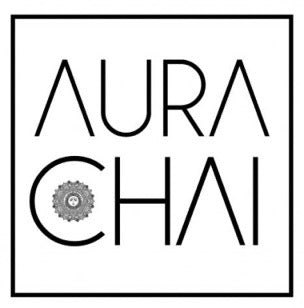Recently we were asked if our blends are safe to consume during breastfeeding – so after providing the answer for our lovely customer we thought we’d write up our response for any other new mums out there who are wondering whether chai is safe to drink during breastfeeding.
As chai specialists we’re passionate about sharing absolutely everything a chai lover could wish to know about our beautiful blends. In this comprehensive guide we’ll share with you whether you can drink chai while breastfeeding, and what to look out for to ensure you’re enjoying a safe, healthy blend for you and your baby.
The short answer is yes – most chai blends are safe to consume while breastfeeding. Here are four key things to look out for so that you can enjoy a daily cup of chai whilst keeping you and baby safe and well.
Chai is usually safe if you’re breastfeeding
Good news! Most women can drink chai while breastfeeding. This is because most chai blends don’t contain any ingredients that could be harmful to you or your baby. Masala chai has been consumed in various cultures in the East for thousands of years, and is even used as a lactation aid in some traditional medicines.
Certain foods and drinks are to be consumed with caution (or not at all) as ingredients in them can be transferred to your baby through breastfeeding, so it’s natural to be cautious about what you’re eating and drinking during this time, especially as a new mum.
First – let’s talk tea. Chai latte (or chai tea latte as it’s commonly known in Europe and the US) .
Powdered ‘instant’ chai: Contains several powdered spices such as cinnamon, ginger and clove, alongside tea extract and sugar or sweetener. Instant chai is added to milk or water.
Chai syrup: Made by steeping tea and spices in sugar (when homemade). Most commercial brands use synthetic flavourings and refined sugars which are not generally considered to be healthy.
Authentic whole spice chai: Made the traditional way with black tea and whole spices – all natural ingredients. Often contains a larger amount of different spices including green cardamom, pepper and nutmeg.
Powdered chai tends not to contain as many ingredients – but it is high in sugar or sweeteners – more on this below.
Some ingredients can be harmful depending on their origin
One ingredient, star anise, should be consumed with caution. There are two types of star anise – Chinese Star Anise (most commonly used for human consumption), and Japanese Star Anise. The Japanese variety (also known as Shikimi) contains potent neurotoxins that can be dangerous for adult humans – meaning they’re especially toxic to infants. Commercial chai brands should not be using Shikimi in their chai blends, but it is worth asking if you are unsure, especially if you’re enjoying a homemade chai as the person making it may be unaware of the risks involved.
{Our chai does not contain Japanese star anise}
Chai can contain caffeine
One thing that can concern some new mums is consuming too much caffeine. Whether you’re avoiding excessive caffeine for personal health reasons, or are struggling to keep up after sleepless nights, chai can be a great alternative to coffee. Authentic masala chai blends like ours contain black tea and spices. Unlike coffee, black tea contains l-theanine, which slows down the release of caffeine helping you to avoid peaks and crashes. And as masala chai contains other ingredients besides tea, the caffeine content is lowered even further. Powdered blends often contain tea extract which makes them zero caffeine – but these are usually high in sugar or sweeteners (more on this below). For this reason, chai is a great substitute for coffee – especially if you’re craving a creamy latte. If you are avoiding caffeine altogether, chai might not be the best option for you – unless it’s caffeine free (we have a selection of caffeine-free blends here).
Non-authentic chai blends can be high in sugar
Sugar highs and the subsequent crashes can be not-so-helpful for new mums, so watch out for sugar content in your chai. Powdered blends contain sugar as a flavour enhancer – and when it’s not sugar, it’s usually chemical sweeteners. These tend to be present in large amounts, because the sugar or sweetener has to assimilate throughout the whole product, meaning it has to feature in high quantities. Although sugar and most sweeteners aren’t acutely harmful, they can be damaging for the health of you and your baby in large quantities.
All our chai blends are sugar free, so you can add your sweetener of choice to taste for healthy treat or a sugar boost when you need one.
So, can I drink chai while breastfeeding?
The answer to this depends on two things – the ingredients in your favourite chai blend, and your personal preferences. But on the whole, the answer is yes – it’s perfectly safe and healthy to drink chai while breastfeeding. So go ahead and enjoy – you deserve it mama!

